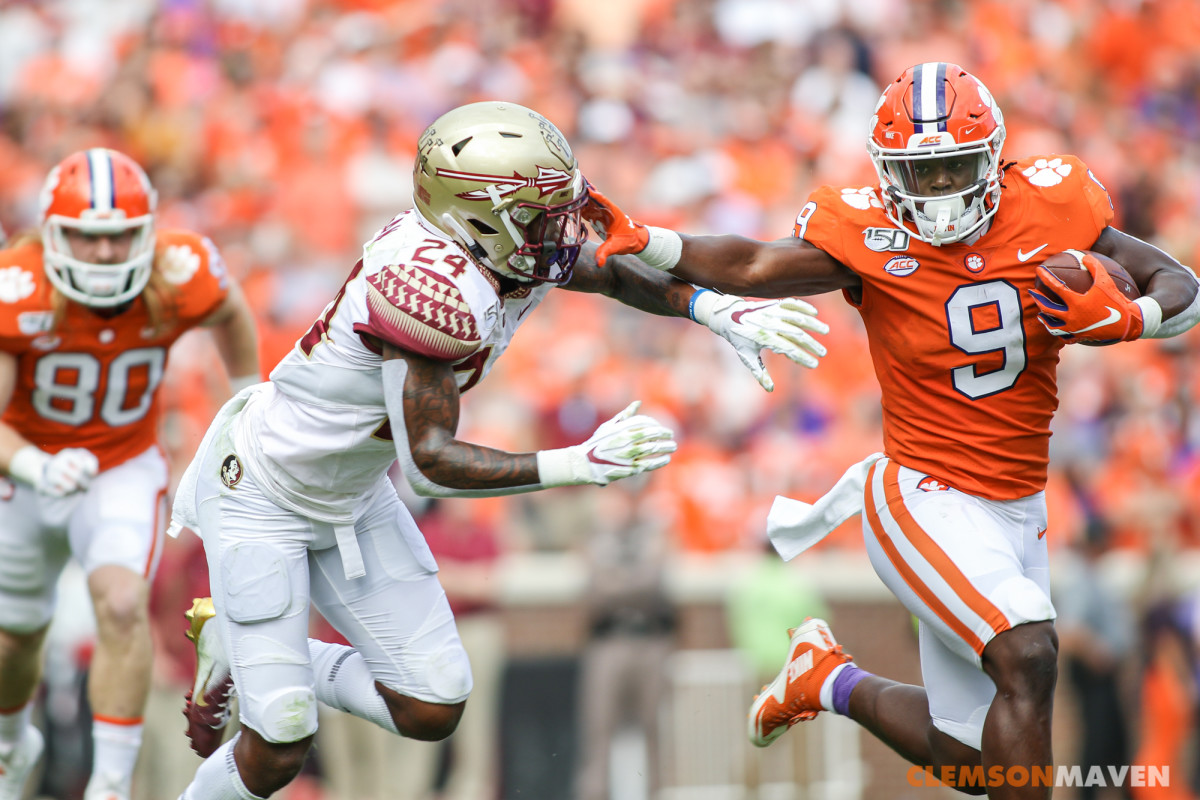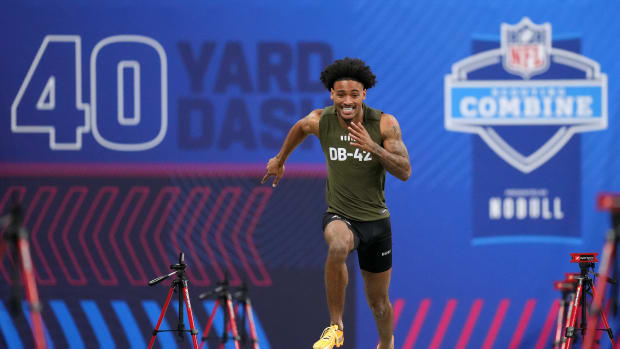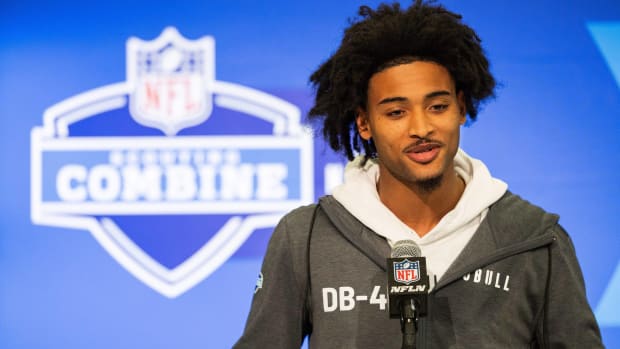Taking the P-O off, Means More Touches for Etienne

CLEMSON—The Clemson Tigers finished their week of self-scouting before their game against the Florida State Seminoles. And while the coaching staff was hesitant to give away everything they learned, one thing was clear—they needed to get running back Travis Etienne more "no doubt touches."
Those touches meant taking away the pass options from their run-pass option, RPO, game and making sure that their prize running back gets the ball. However, the challenge of deciding when to take the P-O off and when to leave it on is something that co-offensive coordinator Tony Elliott is still learning.
"I think that I got to do a good job in certain situations of taking the RPO off, and then just calling it where it's a designed run regardless of what the defense is, just to force traffic, because if you give Travis the ball, he's going to break a tackle or two, and so it doesn't have to be perfect," Elliott said. "Then taking a little bit of stress off of Trevor too, that he doesn't have to make every situation right. Then you saw it early in the first night we jumped in with some 12 personnel stuff, with some flash motion stuff that forced the ball to him. Just incorporating that and not just making it a situation where you're putting all the onus on the RPO to bail you out.
"Sometimes you just got to force the issue, and that's what we did, especially down there. Once we got inside the red zone too, we took some of the RPOs. There were a couple of where we left the RPO on but then there were some where we'd just say, 'Hey, take the RPO off, let's hand this thing to Travis and let's go.'"
The adjustment to not calling an RPO is a new wrinkle for the Tigers this season, as at least 60% of the Tigers' offense is based on quarterback Trevor Lawrence making the correct decision of whether to hand the ball off or to pass the ball.
The thing that makes it so difficult to go away from that part of the offense, is the fact that Lawrence rarely makes a poor decision.
"I'd say probably at least 60% of it's going to be RPO based off what the defense gives you, and then definitely a short yard that you take a lot of RPOs off of it, but sometimes you leave it on just depending upon how their tendencies are," Elliott said. "But I'd say that's probably a fair assessment, but sometimes you just need to just take it off. Even when you called the RPO looking concept, take the RPO off and let Travis get the ball.
"That's what's tough, for the offensive line and for Travis is because some of the best block plays, well that apex player was too tight to the box that we needed to throw the RPO, and so you don't get the handoff, and then sometimes you just got to say, 'You know what, let's force the hand off.' That's where I got to grow too, and continue to get better. That's something I'm challenging myself is being able to get away from making everything perfect, and giving all the answers. Give them enough answers, but sometimes man, let's just go force the issue because I think we're capable of doing that."
The danger when the Tigers do take the pass-option off of 60% of their plays becomes predictability.
No longer do teams have to defend multiple threats, instead they know what is coming and it is man-on-man, one-on-one. But it is a part of growing as an offense and, maybe, the next iteration of the Tigers offense—the ability to line up and run the ball even when the other team knows it is coming.
"I think that there might be a little bit more predictability when you're going definitely hand the ball off, just because of some of the sets that you get in to force the issue where you take some of the RPOs out," Elliott said. "But that is a challenge, but this week was good for myself, and good for us offensively, to say this is probably the next step in our offense is to be able to jump from RPO to design run, to play action, to do some different things. So it was good."





